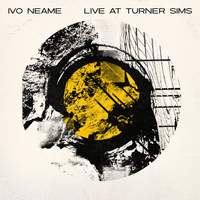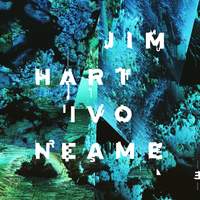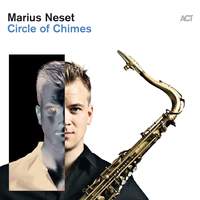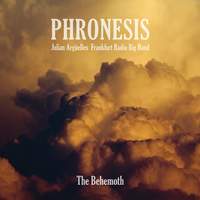Interview,
Ivo Neame's Joy of Piano
Ivo Neame is an award-winning multi-instrumentalist, composer and arranger. As a pianist he has featured in several of European jazz’s most forward-looking groups including Phronesis and the Marius Neset Quintet.
His new album, Live At Turner Sims, is an unedited portrait of a musician at work, alive and in the moment, each take flawlessly rendered, with a sureness of touch, a limitless flow of melodic inspiration, and a use of space and silence alongside the wealth of ideas that demonstrates the creative confidence of a master.
Thanks for joining us, Ivo. This is the first solo album you’ve released so far – how did the idea for the recording come about?
It's the first one I've done completely solo which is obviously a good departure. I got this gig at Turner Sims in Southampton; a friend of mine, Ben Oliver, helped me to set it up. He also writes contemporary classical music, he’s a great musician. We did a lunchtime concert – it was one of my first gigs in October 2020 after the quarantine – and that was really amazing because there was actually an audience. They were all socially distanced, but it was a return to normality after the absolute madness.
Did you have to prepare much before getting back in the headspace of performing?
I’d been doing some livestreams on Facebook, because I wanted to keep playing and performing, just trying to connect to people. Prior to that, I’d done a few solo gigs here and there and I tried to do a recording in the studio but I didn’t really like it… It felt a bit flat. I felt like I wanted to do a gig in front of an audience, no editing, just warts and all playing for a 45-minute set. Improvise, play tunes, a combination of things, record it all and release it. I stuck to the plan, for once, which can be difficult – I’m a jazz musician, so I tend not to!
How was that experience for you overall?
It was great, but tense as well. Getting up in front of 100 people, just a piano in a concert hall, that’s the feeling that I need to improvise and play. There’s that context and that pressure because if you just do it in the studio with an engineer, or even on your own, somehow there’s not the same tension. There are expectations: you’ve got to take people on a journey, tell them a story and all those clichés. It’s storytelling, that’s what it is for me. It’s not the same thing on your own!
It feels like that sense of expectation certainly fell to your advantage on the recording. How did you go about executing it?
I started with an original tune; most of my releases have been of my own tunes and original music. With this album, I wanted to play standards, just interpret tunes. It's almost like an instant arrangement as I’m improvising it. I see myself a lot as an arranger, I wrote a lot of music for large ensembles like Dodeka and previously with octets which required a lot of specific musical arrangement. There is improvisation, but I also have to give the trumpets a specific figure or something they have to play. Whereas if you’re just playing a solo piano tune, I approach it like I’m doing an arrangement on the fly.
Improvising on the piano, I imagine it’s almost like having an orchestra at your fingertips?
That’s what I really like about the piano, it can do what no other instrument can… You can have counterpoint going on, the different lines and voices. So it’s a question of exploring that and seeing what’s possible. But it’s all improvised, which is tricky. It's difficult to get fluency in your hands and with your ideas when you’re improvising melodies in real time. It all takes years and years of being in the shed.

What are the major differences between the scene today and when you were an up-and-coming student at the Royal Academy of Music?
What was really nice when I was coming up were the collectives of musician-run gigs. What I don’t see so much on the scene nowadays are those grassroots venues. There was this place in Kilburn called the North London Tavern, this group I used to be a part of called the Loop Collective used to organise gigs. The gigs were always packed, loads of people came and there was a real community around, rather than just disparate individuals doing their thing. I could be wrong, but maybe it’s related to social media – I can’t really say! I hope the young crowd are able to get gigs off the ground; that’s what the scene really needs.
One thing I’ve noticed is the wider breaking down of generational barriers between musicians on the bandstand.
I think it’s a good thing when there’s not too much separation between the ages and generations of people playing, that’s the great thing about music (and where else can you get that?).
Obviously [a musician like] Emma Rawicz’s very ‘together’: she writes amazing music and it’s really fun to play in her band [and] I’m very happy she’s asked me to be a part of it. Hopefully that’s progress, if there isn’t too much of a hierarchy… If you know what you’re doing and you’ve got the hunger to play, you can go out and do it. You have to go out and get gigs, get people to know your music and play it in front of audiences. You can’t do it from your ivory tower within the academic world.
I think the conservatoires are valuable, they have great teachers and all… You enter that environment, meet other musicians and get time to practise and to write things together, but you’ve got to get your music out there. Some people mature younger than others, they have a different pace of spiritual evolution – it’s different for everyone, [yet] we’re all trying to grow and become better people.
You’ve played in several different acclaimed groups over the years. I’m wondering how this has affected your growth as an artist?
I played in Phronesis for 14 years. I was developing both as a musician and as a person throughout that period and, when we started playing, I definitely didn't think I had the confidence to be a bandleader; I preferred to be part of a group and work as a collaborator. But, as you get older, you get a bit more particular about wanting to make decisions. It’s still a complicated one in jazz, the whole ‘collective vs the individual’... You have to be a really strong individual but you also have to be able to work as part of a collective, which is an absolute paradox.
We did all those records, played many gigs all over the world and it was a strong team, but then we couldn’t keep going. On a personal level, it became difficult. To be honest, I’m much happier not playing in that group anymore. We did eight albums, seven of which were piano trio. I often wanted to do something with different instruments, but there were all these ideological clashes. There’s actually one tune on the last album that we did where I did a lot of synth overdubbing – but that was a kind of accident!
I was also releasing records all of the time I was playing in that band, but they got more of the attention – that’s the nature of the hype machine. I’m still making my own albums with my twelve-piece band and I'm really happy about that. We’ve got funding from Help Musicians this year: we played at Scarborough Jazz Festival and at the Watermill in Dorking; We’re playing at the Canterbury Festival on the 29th October and that’s great for me, because it satisfies the love of arranging that I have.
You mentioned earlier about the older generation – I've found all these musicians to be great teachers. They’ve helped my generation develop their craft and skills, what it takes to be a professional musician. I think it’s really healthy. [Saxophonist] Julian Argüelles is definitely a generation above me, but I played in his band and learnt a lot, a bit like me and Emma. You want to pass on the skills, knowledge and experience to those musicians who’ve really got the hunger to play.
I hear you’ve also been spending more time in Europe recently?
Last year, I did a duo gig in Varna in Bulgaria which was part of this festival called RADAR. I was asked to play there because I did an album with a great vibes player, Jim Hart. We made an album that came out in March 2020 on Edition Records, which was possibly the worst ever time to release an album – literally the day before the pandemic ! I did that gig with Jon Scott who’s playing with GoGo Penguin and I met a drummer called Jens Düppe; he was doing a gig there of music he’d written during the pandemic.

We were just chatting because we were hanging out and then he told me that he worked occasionally with a band called Cologne Contemporary Jazz Orchestra, another pool of musicians. I told him I'd done this remotely recorded big band album, he liked it and said ‘do you wanna come and play this music with the band’. And so I said yes, of course, brilliant and then they asked me to be Artist in Residence for 2023. In March, I went over to Loft in Cologne where I played a gig [with] three nights’ rehearsal. Since then, I’ve been writing two new sets worth of music for that band. I'm just about to finish the music and I’m gonna go over next month and play two concerts at Stadtgarten in Cologne and then I'm playing domicil in Dortmund… Entirely new music, it’s great to work with musicians from a different scene and get involved in the different country. There’s just so much stuff going on and it’s super fun.
How do you find those international audiences?
I’ve played a lot in Germany with Marius Neset and Phronesis [touring] over the years. There’s a massive market for music there – Germans are very thorough – and it's amazing! You can go and do gigs over there and people already know a lot about you, they do their research, they buy CDs… It’s a great scene to play original music.
Germany has always been the powerhouse of Europe, for better or for worse, and it still is. All the American jazz musicians, the important ones, mainly tour Germany. Germans have an incredible exposure to world-class music that we don’t actually have to the same extent in this country because of the absolute carnage around arts funding. Arts are better funded in Germany so citizens have a richer cultural life over there in terms of being able to go and hear international music. You get it in London, possibly in Birmingham and Manchester, but it isn’t guaranteed anywhere else because of the lack of funding. It’s a weird scene.
One that’s rendered even weirder in light of recent political events, I imagine?
The scene in the UK is great, the musicians are amazing but it’s true – we are an island, even more so in light of Brexit. So, these international collaborations are amazing... I feel lucky to do them and they’re really important as well.
My connection to Scandinavian musicians only came about because of everything I grew up listening to in the nineties and early 2000s. The jazz course at the Academy opened its doors for EU citizens and there were loads of Danish guys so I got to know a lot of those musicians and I made very good connections and learnt a huge amount from the musicians from those countries. That has to continue, that’s one of the amazing things about music. It’s a cliché, but it builds bridges between people and communities, that’s why the arts have to be represented and taken seriously I know people think of jazz like the whole thing’s a bit of fun, but it’s not: it’s a whole thing for the benefit of communities – why else would we do it?
Have you set aside more solo dates for the future?
I would love to do a few more gigs, definitely. I’ve got one on October 28th in a place called World Heart Beat, which is a venue in Vauxhall right by the American Embassy that Julian Joseph [is a patron of]. He’s obviously a very important figure in jazz and broadcasting – I used to listen to his records when I was 13, 14 and loved his playing – so it’s nice to become friends with someone like that. It’s a double-bill gig, I’m playing a solo set then Jonny Mansfield, a fantastic vibes player and composer, is playing the second set with his Quintet.
Is it easy for you to maintain that mixture of playing for work and for your own pleasure?
I see my work as composing and arranging - that’s what I get up in the morning and do in a routine, methodical way. Most recently, I was asked to write a piece by [writer] Peter Morfoot. He wanted a piece of piano music for his wife’s 70th birthday, told me the shape of the tune and gave me a title which was ‘Informed Uncertainty’. So, I just sat down and wrote the tune but, in a way, the practice of writing and completing a tune for solo piano, that’s made me practise certain things I’d written but perhaps couldn’t play – so being able to perform the tune actually dictated what I had to practise and that’s the way it works a lot of the time.
It’s always different, the amount of preparation you have to do for things. I was doing this gig at Swanage Jazz Festival in the summer… I heard someone in the audience afterwards say “Well yeah, he’s just waggling his fingers around isn’t he”! But, really, it's not that! I know it looks that way, but there’s years and years of graft and toil, blood, sweat and tears and all that, to get to the point where it’s effortless. People call it a lifetime’s work – that’s what all the masters call it – and it is, it’s about your growth as a person as well.
In addition to his new album, you can explore other recent highlights from Ivo's discography here!
Available Formats: Vinyl Record, MP3, FLAC
Available Formats: CD, MP3, FLAC, Hi-Res FLAC
Available Formats: CD, MP3, FLAC, Hi-Res FLAC
Available Formats: CD, MP3, FLAC, Hi-Res FLAC







